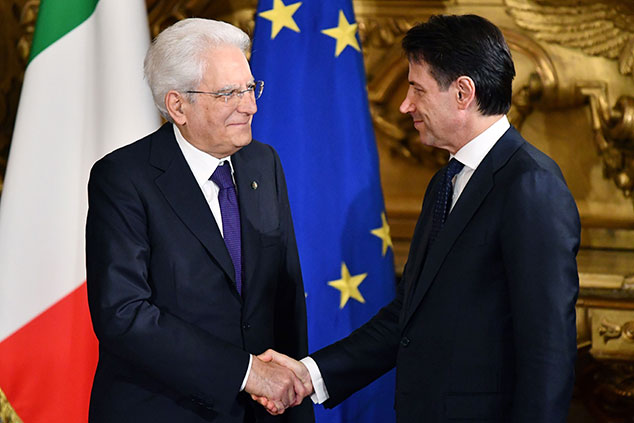
If you’ve been reading the news you’ll know that Italy has undergone a political crisis over the past ten days. It all began when the two populist parties, the Five Star Movement (M5S) and the Lega Nord (LN) agreed a left-right coalition under Giuseppe Conte.
However, on Monday the Italian president, Sergio Mattarella, shocked people by vetoing Conte’s proposed finance minister, Paolo Savona, on the grounds that he apparently supported Italy leaving the euro and defaulting on its debt. To rub salt in the wound, Mattarella then appointed former IMF official Carlo Cottarelli as interim prime minister, prompting both the M5S and LN to threaten to bring down the new government.
For a few days it looked as if there would be another round of elections, prompting yields on ten-year Italian bonds to surge to over 2.5% – a level not seen since the summer of 2014 when the euro crisis was still on everyone’s mind.
However, in the end, both sides pulled back from the brink. The result is that, in a classic Italian compromise, the Conte will become prime minister of a populist coalition but Savona will become European minister, a slightly less senior post.
William Hobbs, head of investment strategy at Barclays, has been following this issue closely and has been good enough to share some of his thoughts on the situation with us, as well as giving us a crash course in Italian politics.
Chaos is the norm in Italian politics
Such a “chaotic political backdrop” is “sadly the norm in Italy” says Hobbs. Part of this is due to the antiquated post-war constitution that was “designed to spread power among a range of institutions” therefore making governments weak and policy-making complex, to prevent the emergence of another Mussolini.
While various politicians have attempted to make things a little less dysfunctional, would-be reformers have come up “against an electorate still reluctant to see a significant centralisation of powers”. When Matteo Renzi tried to make some minor changes to the rules, he was so soundly defeated in a 2016 referendum that he was forced out of office.
All this means that “whatever government emerges out of this electoral soup will struggle with the same constitutional constraints”.
It’s true that “the still indifferent state of the Italian economy allied with a surge in immigration continues to provide the populists with rich fodder”.
However, those who want to leave the EU face some major barriers, one of which is that “Italy is constitutionally barred from binding referendums on international treaties”, which would seem to preclude a vote on Italy’s membership of the EU and euro. To change this “they would need to drum up a super majority in both houses of parliament”.
So, while the chances of an exit from the euro, or even the EU, have increased this is still “very unlikely and with many sizeable obstacles in the way”.
How to bet on an Italian recovery
However, just because Italexit is unlikely at this moment in time, this doesn’t mean that Hobbs is in any way enthusiastic about Italian government bonds. While “there is a price for everything”, he believes that “investors are still not being offered much compensation for the risks of lending to Italy in or out of the euro”.
He is also pessimistic about fixed income in general as “there are few hiding places in a global bond market undergoing its most sustained correction in decades”. Overall, “although peripheral European debt may in some circumstances trade more pro-cyclically, we are not singling it out at the moment as an opportunity for investors”.
If you really want to bet on an Italian recovery, you’d be far better focusing on shares, rather than bonds. “Very risk aware investors who believe that calm will return, one way or another” should think about “Italian or even wider European banks” as “ an interesting opportunity”.
However, Hobbs warns that, “any investment in the sector needs to be conducted with eyes wide open”. After all, “this is not a quality sector, as many of its constituents, particularly in Italy, remain dogged by steep non performing loans and a very unfriendly interest rate backdrop unlikely to improve much in the immediate future”. Still, “much is in the price”, and the region’s economic prospects, “remain good enough”, which should provide some support for the sector.